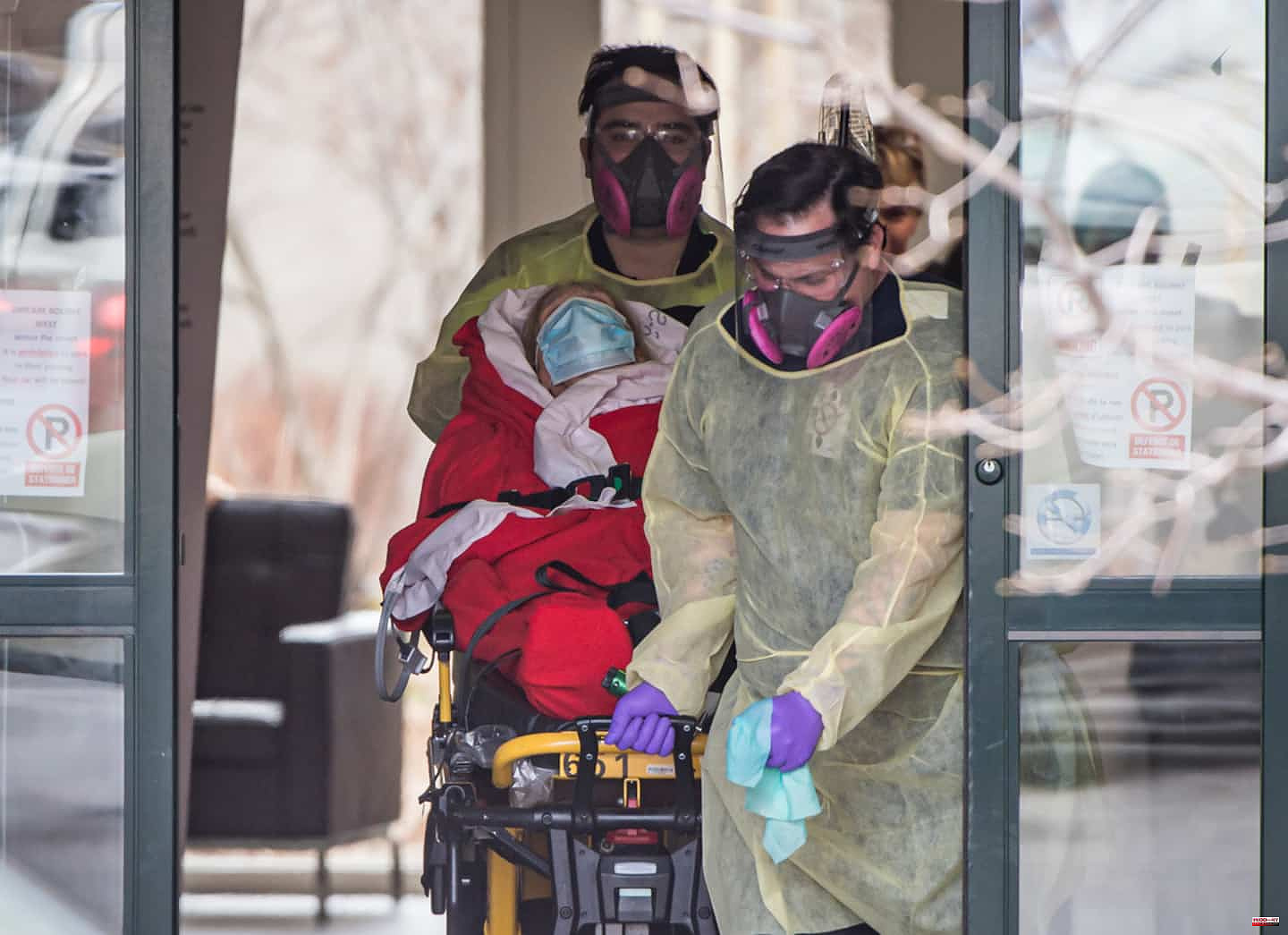Coroner Géhane Kamel presents her report aimed at shedding light on the deaths of seniors or vulnerable people who occurred in residential settings during the first wave of the COVID pandemic.
Here are its main conclusions and recommendations:
To the Government of Quebec
- Review the role of the national director of public health so that his functions are exercised completely independently and without political constraint.
- Assess the possibility of setting up a voluntary emergency civic service that would be overseen by the Ministry of Public Security, as is sometimes seen in the event of a natural disaster.
- Quickly review the service offer to our seniors by converting all private CHSLDs into private CHSLDs under agreement.
- Increases the service offer for home support for our seniors.
- Ensures an inclusive policy in times of crisis to allow at least two caregivers to visit the person accommodated in a safe manner.
- Implement safe healthcare professional/resident ratios in CHSLDs.
- Increase, when required, the number of managers in CHSLDs to ensure that all shifts are covered (evening and night delegated powers).
- Provide for discussions with the union bodies in order to review or add, where applicable, clauses in collective agreements allowing for increased availability and relief of staff during a health emergency.
- Plans new infrastructures or renovations of accommodation environments by ensuring that the environments can meet the requirements required in terms of health care, particularly in times of health crisis.
- Ensures that accommodation facilities can offer individual rooms to residents.
To the Ministry of Health and Social Services
- Introduces the precautionary principle at the center of any risk assessment and management process.
- Ensures greater accountability of managers of CISSS/CIUSSS and the Ministry of Health and Social Services for the care provided to elderly people with loss of autonomy by monitoring indicators and an obligation to intervene in the event of problems in the quality of care.
- Ensures to maintain at all times the necessary supply of protective equipment in addition to providing reserves to meet the needs in the event of a crisis.
- Define what comfort care facilities in CHSLDs must at least be able to offer.
- Establish a national plan to provide all CHSLDs with the necessary equipment to provide this care.
- Review technical training so that nurses in CHSLDs and, where applicable, auxiliary nurses are able to perform the techniques necessary for basic care (respiratory care, venous and subcutaneous access, use of volumetric pumps, etc.) .
- Develop a tool with scenarios so that residents and/or their guardians can fully understand the implications of a choice of level of care.
- Ensures management in the CHSLDs which bring together a responsible manager, a nursing care directorate and a medical directorate.
At the CISSS and CIUSSS
- Ensure in the CHSLDs the sufficient presence of nurses specialized in PCI so that they can be present in the daily operations and that they ensure their sustainability.
- Make sure to plan simulations in line with pandemic plans every three years.
- Offer training in keeping medical records and do periodic follow-ups.
- Ensure the necessary supervision justifying the use of distress protocols and palliative sedation in an acute care setting.
At the College of Physicians of Quebec
- Review the individual medical practices of the attending physicians of CHSLD Herron, Les Moulins and Sainte-Dorothée, in particular with regard to their decision to continue teleconsultation care despite the need for support and the very large number of deaths.
- “The COVID-19 crisis illustrates decades of failing public policies concerning CHSLDs that were already known.”
- "Quebec's reduced hospital capacity compared to other countries of the Organization for Economic Co-operation and Development (OECD), combined with the prior fragility of CHSLDs, has prompted the authorities to have the first instinct of protecting our hospital capacity by avoiding including the transfer of residents to hospitals.”
- “This protection of hospital environments certainly had its raison d’être, but it now seems obvious to me that the pre-existing systemic causes will have to be reviewed and corrective measures will have to be taken.”
Source: Coroner's Office inquest report
1












